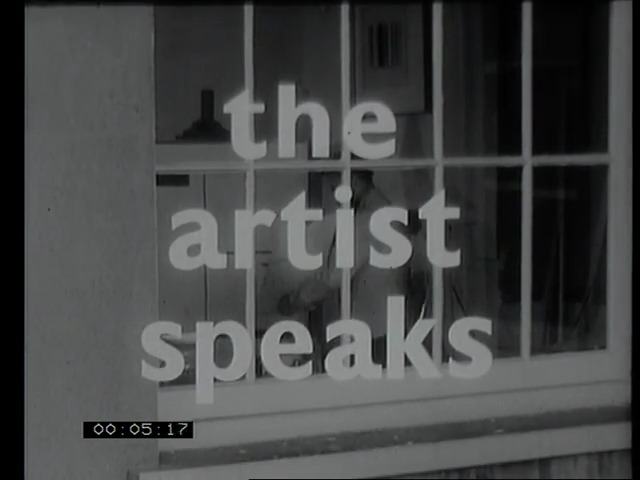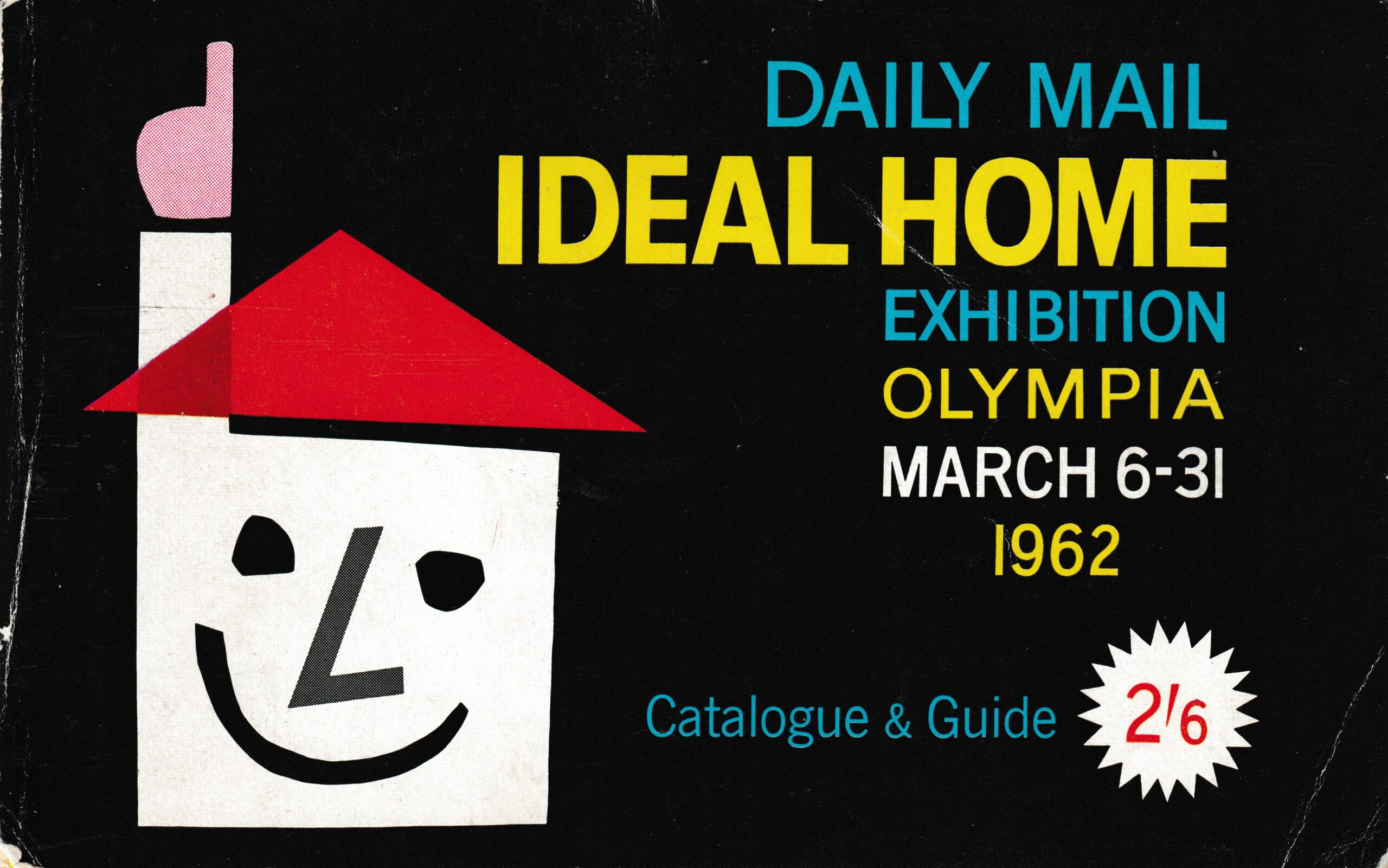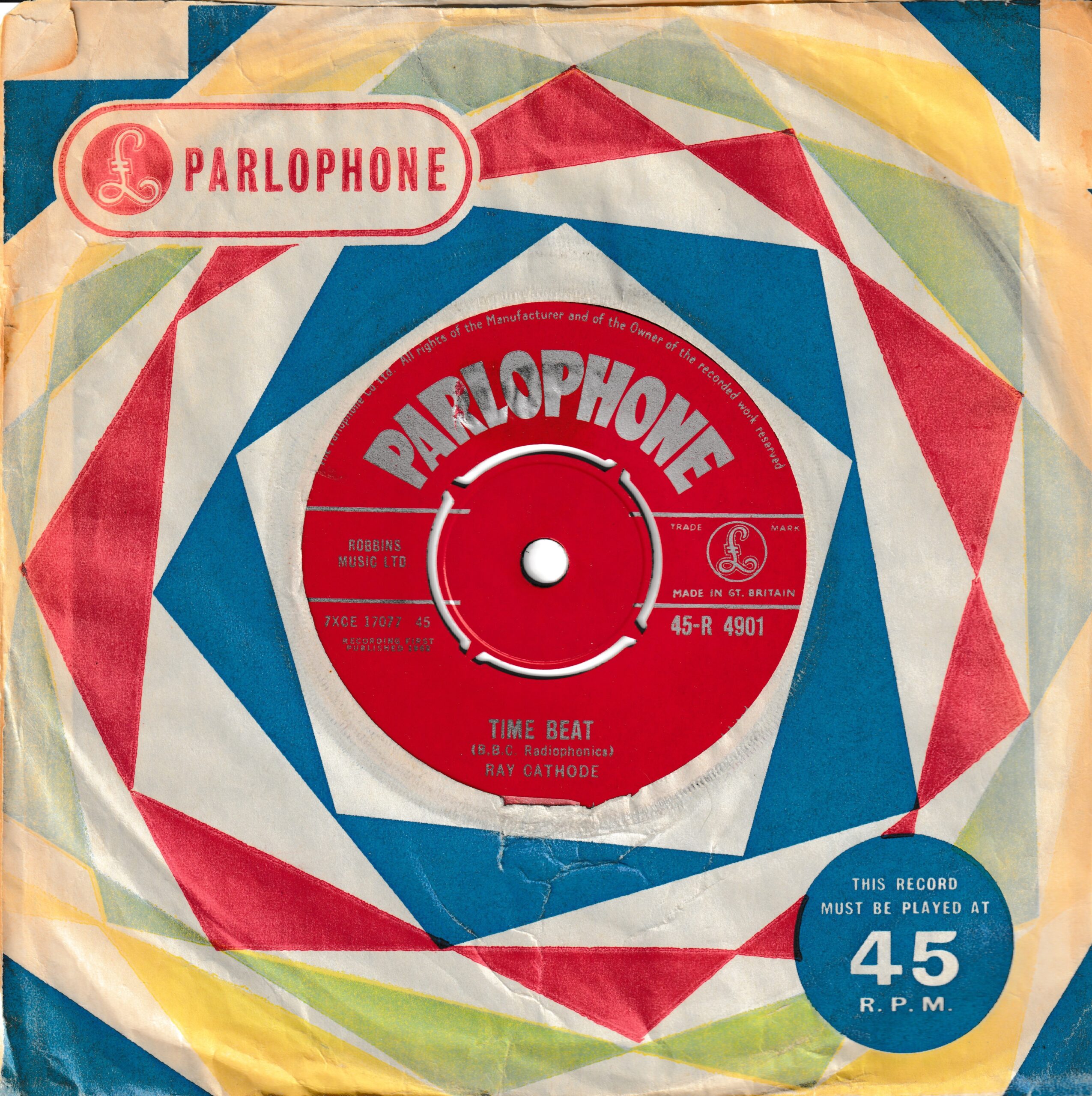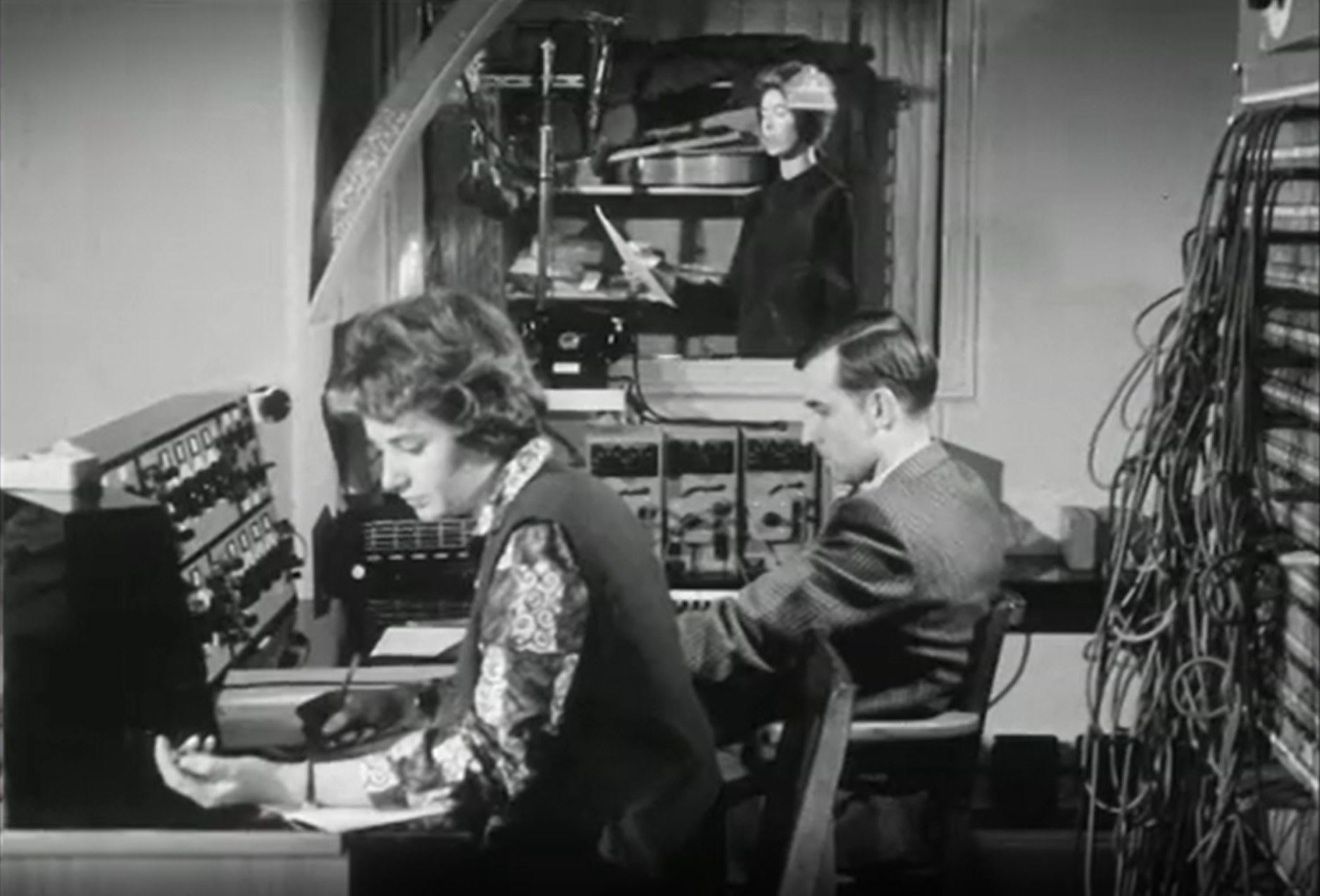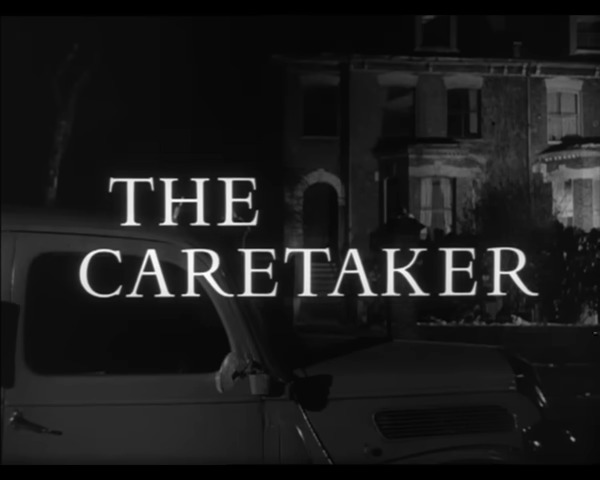Maddalena Fagandini (30th August 1929 – 29th November 2012) joined the Radiophonic Workshop initially in 19591 and had left by 19632. Her BBC career began as a dictation typist in the Italian Section of the World Service in 1953. During this period she visited the Studio di Fonologia Musicale di Radio at RAI Milano, set up by Luciano Berio in 19553. This may have kindled an interest in electronic music and radiophonics coinciding with the formation of the BBC’s similar department in 1958. Around 1956 she took up the opportunity to train as a studio manager and eventually moved into the Drama Department in preparation for an attachment to the Radiophonic Workshop4. This manoeuvring seems to have been part of a recognition that they needed a pipeline of staff to fulfil the rules of limited attachments to the Workshop. In part, Maddalena was filling a gap made when this strict policy forced out Daphne Oram, although several other SMs were being rotated in and out. A year-long gap followed Maddalena’s initial attachment in 1959 before she was transferred fully to the Workshop again in 1960 for a spell.
Piecing together Maddalena’s movements through the BBC to the Workshop is hard. She may have been in Drama before and after her attachment period in 1959. Interviewed by Jo Hutton in 20005 Maddalena refers to several instances of providing spot effects for radio dramas, demonstrating her experience in Drama and the more conventional world of sound effects. 6. She tells of 12 weeks training as a Studio Manager and then wanting to stay at Broadcasting House to “stay in music and drama”.
The 1950s was a time when radio really flowered like crazy. It was wonderful being in radio at the time.
Maddalena Fagandini quoted in Remembering Maddalena Fagandini (1929-2012)by Giles Oakley7
One of Madellana’s contributions to the Workshop’s development was the creation of rhythms or beats used as backing for BBC television interval signals. This was the start of the more accessible end of the music spectrum developed at the workshop during the sixties and indeed led to a brush with the burgeoning world of modern pop music. The idea of piecing together a tape loop consisting of a bar or more of rhythm was not completely new. The restrained and pleasing-to-a-general audience approach was perhaps novel enough to give it a special place in the evolution of popular electronic music though. Most pop composers would not have thought much about the possibilities of tape, given the patience required, and serious composers were using electronics to get away from existing musical forms.
It would be a mistake to pigeonhole Maddalena as only the rhythm maker. She really could turn her hand to anything that came her way and was just as adept in ethereal soundscapes or whatever else was called for.
Her bilingual skills created issues for her commitments at Maida Vale and in 1960 she off again – seconded to Rome to help with the BBC’s coverage of the Olympics. In 1963 Maddelena started work on the first BBC language course, Parliamo Italiano8. This project led to others and she left the Workshop for good to pursue a vocation and what would be a very well-respected contribution to the teaching of languages.
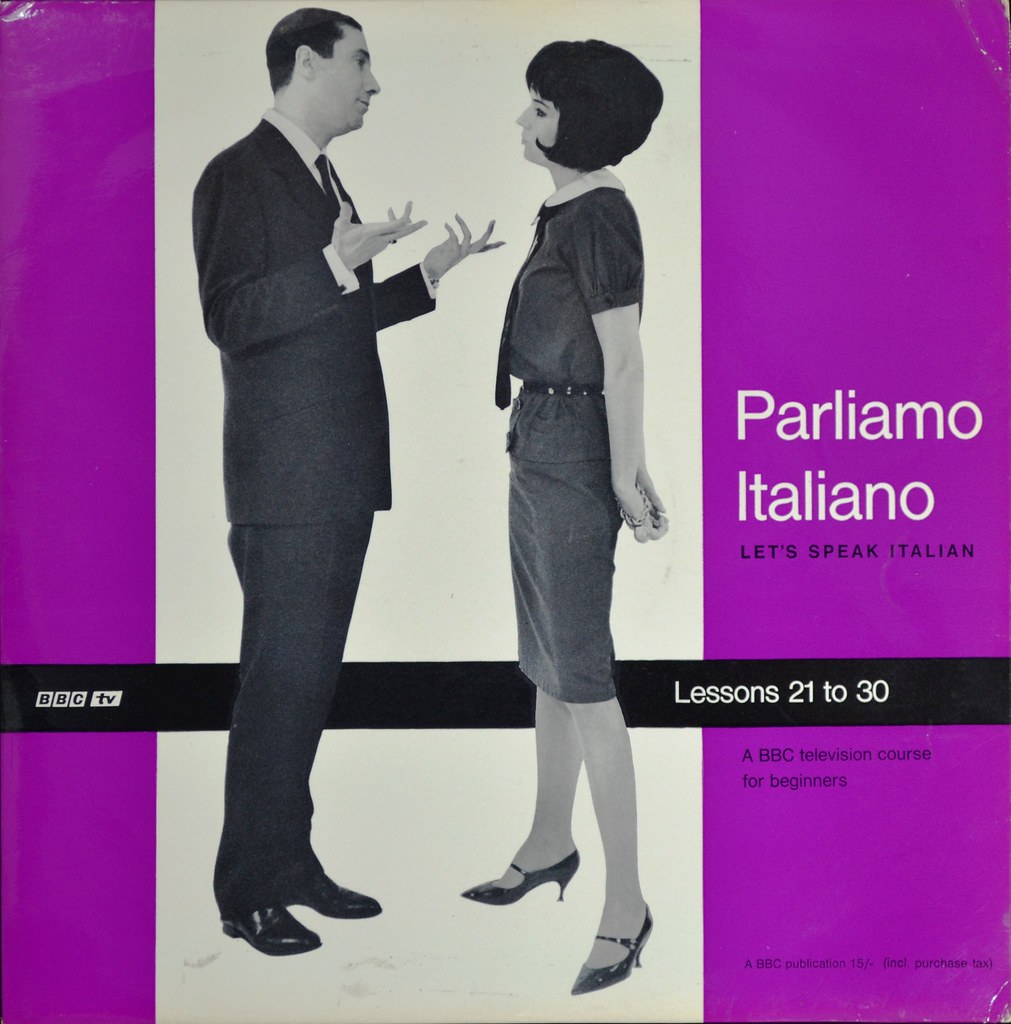
Maddalena offered another reason for moving on9.
I thought that the way things were going it did require far greater musical training. However wonderful the sounds were, it needed something extra. They really started making excellent music.
Maddalena Fangadini interviewed by Jo Hutton (Sonic Arts Network, 2000)
This humble appraisal of her talents was given in the context of the arrival of Delia Derbyshire in 1962. Although her father was a musician we don’t have an exact history of Maddalena’s musical training, if any10. She does talk of learning piano as a child and did some study with Paul Hindemith’s musical theory textbooks. Delia by contrast had both theoretical and practical musical skills and schooling, and as Maddalena points out in the same interview could apply her Oxford University maths brain to the creation of sounds from the ground up. John Baker arrived in 1963 with perhaps ever greater musical qualifications, from the Royal College of Music. In short, Maddalena made way for the next generation and went off happily to the next chapter of her career.
Her television career was still more varied than the language courses as she produced many varied programmes, some in collaboration with the Workshop, such as The Boy From Space. In 1976 she produced a major BBC series about Blues music – The Devil’s Music – despite having no prior appreciation for the genre.11
Maddalena was interviewed on camera for the Alchemists of Sound documentary broadcast in 2003, appearing a few times to talk about her start at the Workshop, musique concrete and her rhythms and Ray Cathode’s alter ego. In 2020 she was portrayed by the actor Saskia Reeves in Delia Derbyshire: The Myths and Legendary Tapes where she fulfills a kind of guide or mentor role to Delia when she joins the Workshop.
Notable Works
Notable Fagandini works are Rhinocerous, Things That Go Bump In The Night, Orpheus, The Insect Play12, Science & Industry (with Phil Young), Interval Signal, Timebeat (the original), Ideal Home Exhibition and The Chem Lab Mystery, Adventure Playground, Actualidades (two considered for ’21), Ron Grainer’s soundtrack to The Caretaker, and Timebeat/Waltz In Orbit (Parlophone records).
Due to the anonymity of the Workshop’s output during her time there, even within the available tape archive, there is probably much more we don’t know about her work than is catalogued in the public domain today.
Availability
Despite her importance to the Workshop at the time and her trailblazing, there is precious little of her work available now. Four credited tracks on BBC Radiophonic Workshop – 21 (the same on A Retrospective) are all we have officially from the BBC’s archives. The soundtrack work on The Caretaker is available only as part of the finished film and the Parlophone 7″ is available in various forms.
Following almost a year after their first television job (see Amphitryon 38, March 1958) Desmond is now teamed up with Maddalena Fagandini (with assistance form Dick Mills) for Outside, which may also be their first documentary.
Continue Reading 19th February 1959 – ‘Outside’ broadcast (BBC tv)
Science and Industry was the first electronic signature tune for a BBC radio programme, making it a landmark worthy of special attention. I say tune but this is quite a challenging sequence of musical scenes from Phil Young. Although there’s no information on when it was first used in a broadcast it was entered into the BBC Recorded Programme Permanent Library with this ‘rec’ (recording) date.
“…Rhinoceros, where the herds of thundering pachyderms choke the characters with dust and drown their cries with their trumpetings” (Michael Bakewell, Radio Times). Maddalena Fagandini has fond memories of this production.
Continue Reading 20th August 1959 – Rhinoceros broadcast (Third Programme)
Maddalena’s other rhythm. “One of the many interval signals that filled the gaps between TV programmes” – Brian Hodgson, Radiophonic 21.
Also known as Pictures from the Insects’ Life this play, written by Karel and Josef Čapek, was presented here with music by Maddelena Fagandini. Although it was not a great production overall this was apparently a major commission for the Workshop.
‘The most significant factor about this approach to painting and sculpture, completely free from representation, is that it provides a completely new and more dynamic relationship between the Work of art, the artist and the spectator… if it were large enough he could get into it’. (BBC Television film) “Abstract sound by: The BBC Radiophonic Workshop” […]
Continue Reading 15th August 1960 – The Artist Speaks: Victor Pasmore broadcast (BBC tv)
Also known as Time Beat, Maddalena Fagandini’s rhythm track had slightly less ‘fab’, and rather more obscure, origins.
Continue Reading 3rd October 1960 – Music for Party Political Conferences broadcast (BBC tv)
A World Of Sound series brings us ‘An anthology of ghosts’ with ‘Sound score by: The Radiophonic Workshop’ in the guise of Maddalena Fagandini
Continue Reading 20th January 1961 – Things that go Bump in the Night broadcast (BBC Home Service)
Or ‘From The Fifties: Orpheus’, to give it its full title. Adapted for radio by Michael Bakewell from Jean Cocteau’s film script with music and “special effects” by Maddalena Fagandini.
Continue Reading 7th February 1962 – Orpheus broadcast (Third Programme)
Music for travellators, or the BBC’s People Make Programmes Exhibit, by Maddelana Fagandini.
Continue Reading 6th March 1962 – ‘Ideal Home Exhibition’ event (Olympia, London)
Space Age Pop from Maddalena Fagandini and…
Continue Reading 19th April 1962 – Ray Cathode – Time Beat/Waltz In Orbit released (Parlophone)
“The staff in the BBC Radiophonic Workshop at work, as the experimental broadcast Private Dreams and Public Nightmares is recorded.” (re-recorded)
Continue Reading 13th November 1962 – World Of Sound broadcast (BBC tv)
In the same Saturday teatime slot soon to be filled by another children’s sci-if serial with Radiophonic music, The Chem Lab Mystery was a school-based serial with alchemy as the central riddle. Maddalena Fagandini created the theme.
Continue Reading 5th January 1963 – The Chem Lab Mystery broadcast (BBC tv)
Desmond and Ron are thick as thieves, stealing into Maida Vale at night with Maddalena to create an impressively subtle soundtrack. Precise dates are hard to come by regarding this, but it seems that at around the same time that the Giants of Steam was being created Ron Grainer had another commission which required the assistance of the special sound experts in Maida Vale.
The likely source of Verity Lambert’s interest in using Les Structure Sonores to supply the theme for Doctor Who.
Continue Reading 3rd July 1963 – Les Structures Sonores broadcast (BBC tv)
This assignment was the end for Maddalena Fagandini at the Workshop. Her potted history in The First 25 Years… mentions this as another theft of her time from Maida Vale and there is very little work logged in 1963. Her role here was as a director
Continue Reading 5th October 1963 – Parliamo Italiano: 1: Al Caffe broadcast (BBC tv)
- 1960, according to The BBC Radiophonic Workshop – The First 25 Years, although there are tape library entries from 1959 which may be explained as an attachment which was then extended into a more permanent position in 1960. ↩︎
- Her leaving date is also quoted elsewhere (Alchemists Of Sound, Wikipedia) as being 1966, yet the last tape entries are 1963, which is the end date given in 25 Years. Also in 25 Years, her stint is stated as three years and 1963 aligns with when she began work on Parliamo Italiano and the start of a new calling. ↩︎
- Alchemists of Sound () ↩︎
- Special Sound (2010) ↩︎
- Radiophonic Ladies – Diffusion – Sonic Arts Network, retrieved from the Way Back Machine ↩︎
- The whole point of the workshop was to create, on tape, sounds which could not be conjured up in front of a microphone during a live studio production, so although it’s not impossible that she was doing some of that whilst at the Workshop it’s more likely that it was experience she brought with her from her time as an SM in Drama. ↩︎
- http://ex-bbc.net/cgi-bin/yabb/YaBB.pl?num=1354625297 ↩︎
- https://genome.ch.bbc.co.uk/d3788eb43bd14c3797b3e553c934d0f8 ↩︎
- In the same interview, Maddalena says that she was prompted to leave by something else. “I moved when the Moog synthesiser came in”. This is wrong in two ways. Firstly the EMS VCS3 was the first synthesizer at the Workshop and there never was a Moog anything at the studios. I know that Moog is sometimes used interchangeably to mean any synthesizer, particularly in their heydays of the late sixties and early seventies, so that’s probably what happened here. Secondly, the VCS3 wasn’t available until 1969 and, as already, noted she left to pursue her passion for languages at least six years before that. To be even more fussy about this, the first Moog synthesizer was demonstrated in 1964 and wasn’t really for sale at that point, although demand saw to that notion. What Maddalena said in the quote above, directly after this Moog comment, is far more interesting, I think. In that context, I wonder if her point was mispoken and she really meant that the coming synthesizers would have seen her off eventually. ↩︎
- She was perhaps as suggested here self-taught http://sparksinelectricaljelly.blogspot.com/2013/02/maddalena-fagandini.html ↩︎
- https://genome.ch.bbc.co.uk/18b13424dfa32fbbb9d8a4fa6924736a ↩︎
- All highlighted in 25 Years ↩︎

